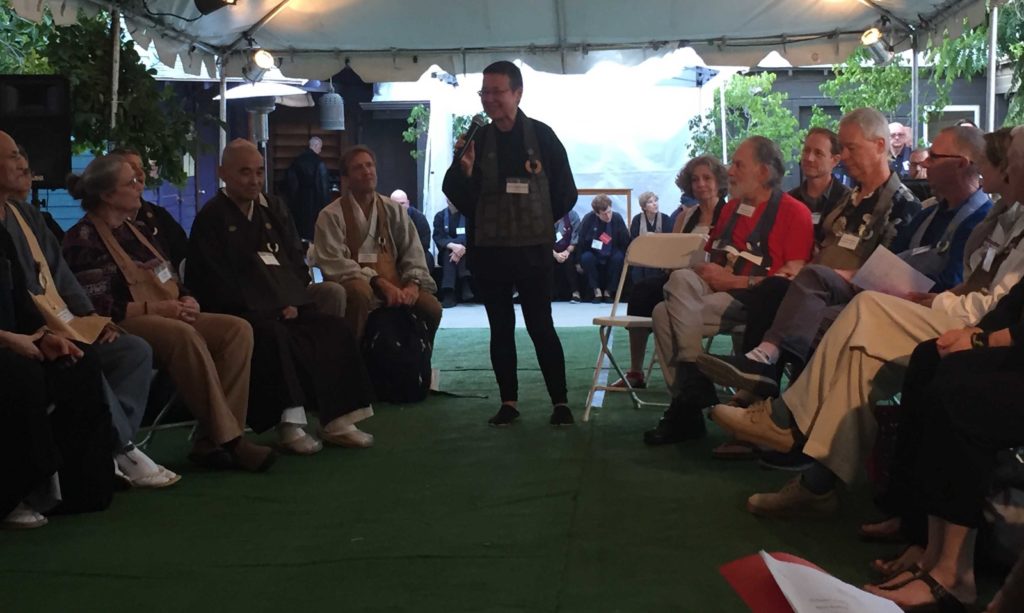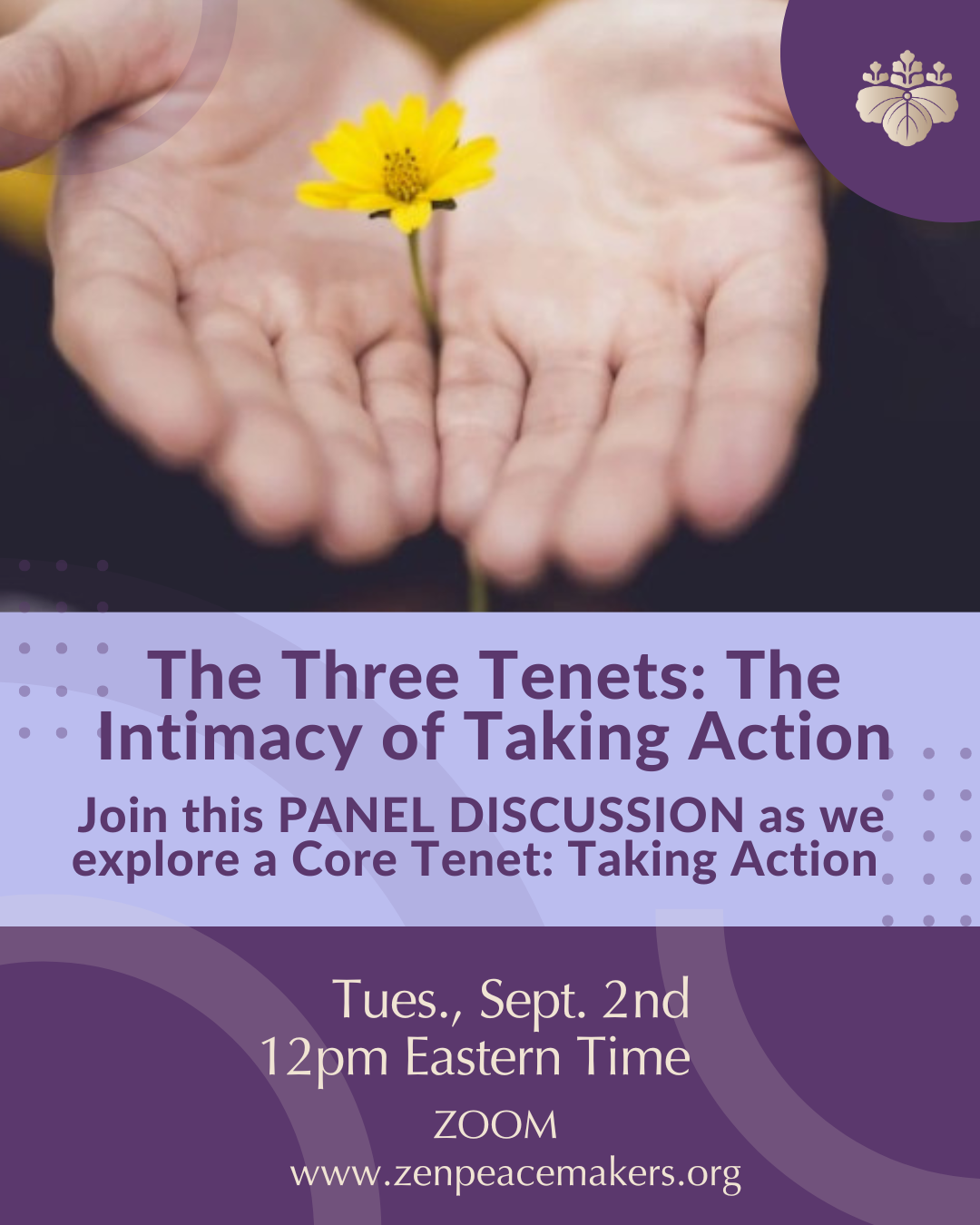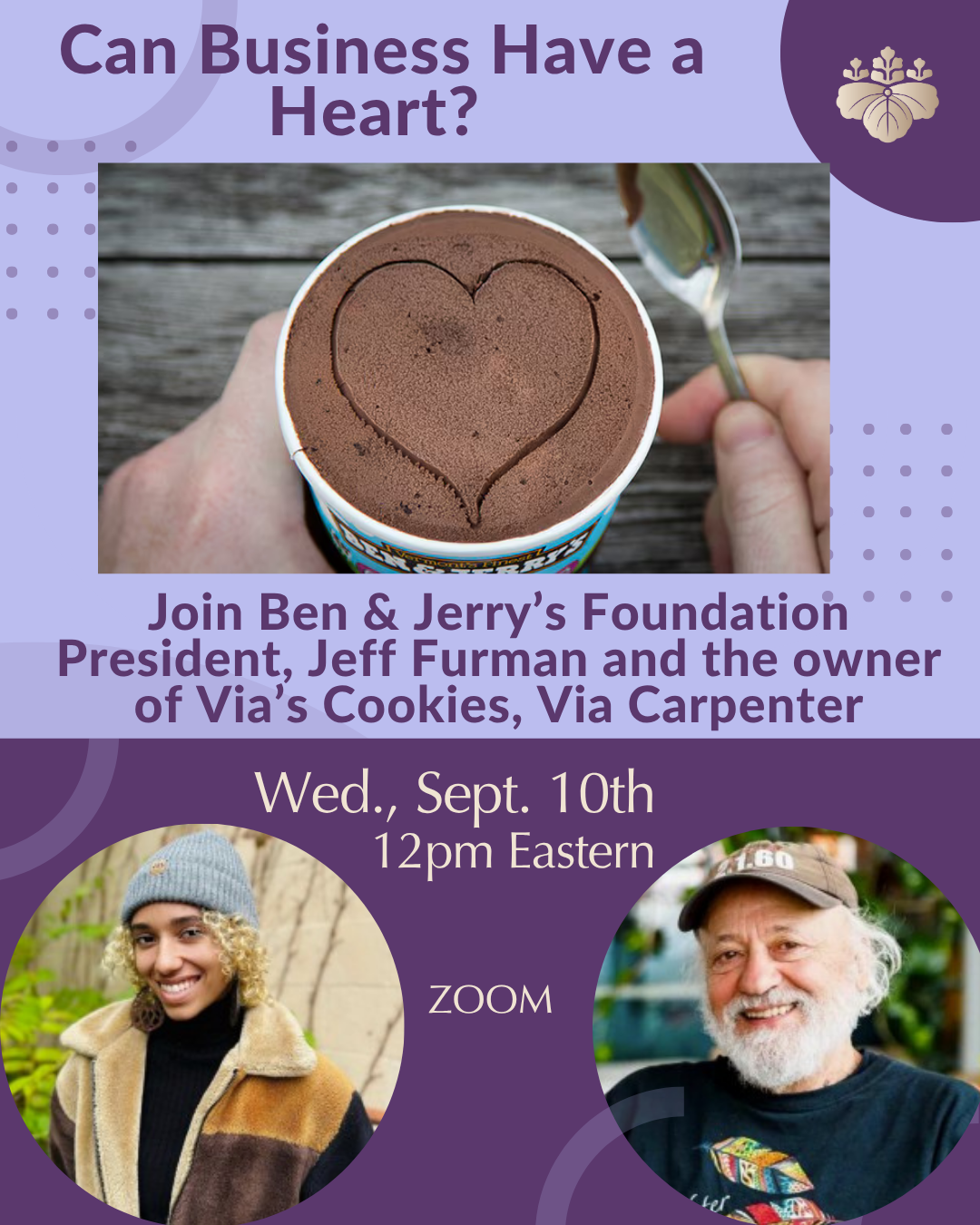Roshi Egyoku welcomes the White Plum Asanga Teachers
LOS ANGELES, CALIFORNIA, USA. Zen Peacemakers is a branch of the White Plum Asanga, a lineage of Zen Buddhism that originated from successors of Hakuyu Taizan Maezumi Roshi. Zen Center of Los Angeles was opened by Maezumi Roshi in 1967 with Roshi Bernie Glassman succeeding as its 2nd abbott in 1995, and Roshi Egyoku as 3rd abbott in 1999. ZCLA has been the training grounds for Mazeumi’s successors and many of the diverse, colorful leading Zen teachers in America and in the West. Today, ZCLA is a bustling urban training center in the heart of Los Angeles. Its robust residential and lay sangha is deeply involved in the local community of immigrants, homeless and refugees.
We’ll See You Everywhere: Roshi Eve Marko Reflects on the 50th Anniversary of the Zen Center of Los Angeles
By Roshi Eve Myonen Marko
originally appeared on www.evemarko.com on June 19, 2017
Why is it that of all the great photos taken of the gathering of so many Zen teachers at the 50th anniversary of the founding of the Zen Center of Los Angeles, the one that stands out for me is this one, of their teacher, Roshi Egyoku Nakao, and members saying goodbye to Bernie and me as we left on Sunday morning?
By then most of the 70 Zen teachers of the White Plum lineage who’d arrived from Europe and all over the US were gone. Bernie had temporarily run out of stories about what he remembered from 50 years back (he was the only one there who went back all the way to the beginning). We’d cleaned out the on-campus apartment that a generous woman had let us use, packed up the car, and then a group of residents and members of the Center came over to say good-bye.
Some did it formal style, putting their hands together, and some hugged and kissed. It reminded me how often over these years I’ve parted from Zen friends, feeling at times constrained to do the formal farewell gesture when what I really wanted was to hug them and tell them how much they meant to me, how much I loved them, how they made the ineffable effable.
It’s not just that this gathering took place a year and a half after Bernie’s stroke and I watched him struggle onto his feet from the wheelchair for the memorial service to his teacher, second wife, and students. Nor is it the lines on others’ faces, watching strong bodies get thin, people who once loved to talk get quiet. Passage of time doesn’t just bring on old age, it brings the beauty of refreshed gardens, renovated temples and halls, a pretty opera singer singing exquisitely under the stars, and new faces with the intense, passionate eyes of young practitioners that I remember so well from years ago.
But still, there was talk of who will be there at the 60th and who will not. At the memorial service I counted 7 successors of Maezumi Roshi, 5 less than the original dozen. Roshi Chozen Bays, who officiated at the service, invoked those who were gone, saying we needed them, for now they were no longer in their original forms, they were everywhere. So two days later I heard one long-time teacher part from another, who’s older and not in good health, saying, We’ll see you everywhere.
There’s so much life in poignancy. And wonder, too, as I contemplate all the different threads that tie me together to these people, the place, a particular Japanese family, this particular niche in history when Zen practice came riding out of the West like some Wild West cowboy, only the cowboys were Japanese who were damn good lassoers because they captured entire herds of us, kept us fenced in to graze on some very fertile pastures, and then let us loose to do our damage in the world.
And then there are their successors, of which Bernie is one, powerful men and women who were told by their teacher to take as much as they could from him and then spit out what didn’t fit for this country, and they did just that, each following a path unique to his/her personality and flavor. And the result is that all of us there, teachers and senior students alike, are brazenly different, traditionalists and renegades put together, and why not? The Japanese masters who first brought Zen to this country were also renegades in their own land.
How did this happen, I’ve often asked myself. How did a dumb woman in her mid-30s, emotionally immature, with a history of bad decisions, do this one smart thing that finally, so many years later, brought her to this gathering in Los Angeles in 2017? And to so many other places beside, places of deep poignancy.
So this last weekend I counted not just those who were present but also those who were absent, and felt unusually blessed to experience those moments when the invisible becomes visible, when a fragment of this gigantic web is suddenly crystal clear, and you marvel at its vastness and luminosity.
There was the gorgeous altar that hosted many beautiful ceremonies, a fabulous Saturday night show under the tent, tables set up banquet-style under shady trees, and even the exquisite Kanzeon garden at the very corner, secluded and quiet smack in the middle of a busy block in Koreatown. But it’s the people who wave hello and wave goodbye who thrust everything forward. They might have originally jumped in because they needed solace, rest, or refuge, but in the end they can’t help it, they become the current.
Roshi Eve Myonen Marko is one of the founding teachers of the Zen Peacemaker Order and a principal teacher at Green River Zen Center in Massachusetts, USA. She has co-led bearing witness retreats in Auschwitz-Birkenau, Rwanda and the Black Hills. Eve writes regularly in her blog and is the author of the novel The Dogs of the Kiskadee Hills: Hunt for the Lynx.




One Response
Thank you dear Eve, it was such a blessing for Roland and me joining this wonderful meeting. To be hosted by such a generous, loving Sangha and it`s wonderful abbot. Meeting old friends and new friends was so good.
Sitting in small and big Circles sharing about our life and practice, offering ceremonies, stories…..
Thank you for making this possible Roshi Egyoku & Sanghamembers and everyone of the family.